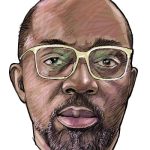February 02, (THEWILL) – The agreement within the Peoples Democratic Party to rotate power between the north and the south played a major role in shaping Nigeria’s political landscape. This informal arrangement was a response to the circumstances surrounding the annulled June 12, 1993, election presumed won by Moshood Kashimawo Olawale Abiola, a Yoruba man.
When the military handed over power to civilians in 1999, the choice of Olusegun Obasanjo, another Yoruba man, was a deliberate move to address the injustice of Abiola’s annulled electoral victory and subsequent death. The understanding was that after two terms of eight years in the south, power can then shift to the north for another eight years.
At the end of Obasanjo’s tenure, he maintained this agreement by persuading Peter Odili, a strong southern contender, who would have won the PDP’s presidential ticket, to step aside. This allowed Umaru Musa Yar’Adua from the north to emerge as the candidate and eventual president.
However, Yar’Adua’s presidency was cut short by illness and his subsequent death in office, bringing his vice president, Goodluck Jonathan, into power. This development disrupted the rotation agreement, leading to growing discontent in the north.
When Jonathan decided to contest again in 2011, the north saw it as a betrayal, believing that the region had not completed its full term. Despite the pushback, Jonathan won the election but faced increased opposition throughout his tenure.
By 2015, the opposition, led by Bola Ahmed Tinubu, capitalised on the growing dissatisfaction. Tinubu, a shrewd political operator, played a central role in uniting various opposition groups to form the All Progressives Congress.
The selection of Muhammadu Buhari, a former military head of state from the north, was a masterstroke that secured overwhelming support from the region. This coalition brought an end to the dominance of the PDP, which had held power since the return to civilian rule in 1999.
During Buhari’s presidency, Tinubu worked strategically to position himself for power. He understood that a divided opposition was key to his success, and it was to his advantage that the PDP remained in turmoil.
To worsen their case, the PDP faltered again in 2023 when it ignored its own zoning arrangement and fielded Atiku Abubakar, a northern candidate, instead of choosing someone from the south. The same Atiku, who had weakened the PDP when he decamped to the APC, had only just returned to the ranks of the PDP. This decision alienated southern members of the party, particularly Peter Obi and Nyesom Wike, who had been a major donor to the PDP during Atiku’s absence.
The internal divisions within the PDP played directly into Tinubu’s hands. He capitalised on the resentment by offering Wike and his group a deal for support, which included a ministerial position in his administration and political appointments, effectively weakening the main opposition party further.
With Wike on his side, Tinubu ensured that the PDP’s internal conflict deepened, leaving them incapable of mounting any real challenge to his government till date. The Labour Party, which emerged as an alternative in 2023 on the back of Peter Obi, has also been plagued by leadership disputes, further diminishing the strength of opposition politics in Nigeria.
With the major opposition parties in disarray, defections to the ruling APC have become the norm. Politicians who see no future in a weak and divided opposition are making the strategic decision to switch sides, positioning themselves for relevance in the next election cycle. This is a continuation of the same political calculations that saw PDP stalwarts join the APC in 2015 when it became clear that Jonathan’s administration was vulnerable.
Tinubu’s ability to manipulate political dynamics to his advantage is evident in how he has kept the opposition in check. He does not just rely on incumbency; he actively creates conditions that prevent opposition parties from becoming a real threat. By securing the loyalty of key figures from rival parties, he ensures that their structures remain fragmented. His approach is not new. It mirrors the tactics used in the past when the PDP was at its peak and opposition parties struggled to form a united front.
The current political landscape suggests that the next election might be an easy win for the APC. Challenging an incumbent has always been difficult in Nigeria’s political history. When opposition parties are strong and united, they stand a chance, but when they are weak and divided, victory becomes impossible. The PDP and the Labour Party face a critical challenge—whether to continue their infighting or to learn from Tinubu’s playbook by forming a coalition capable of competing at the highest level.
Instead of consolidating their forces, opposition figures continue to operate in isolation, each believing they can fight a battle that requires collective strength. The APC, under Tinubu’s leadership, has mastered the art of strategic alliances and long-term planning. The opposition, on the other hand, has repeatedly failed to adapt. This failure to evolve has made it easier for Tinubu to tighten his grip on power, ensuring that any threat to his administration is neutralised before it gains momentum.
The implications of a weakened opposition extend beyond party politics. Nigeria operates a democracy where a strong opposition is necessary to hold the government accountable. When the ruling party faces no real challenge, governance suffers, and the citizens bear the consequences. Without a credible alternative, elections become mere formalities, reinforcing the dominance of one party at the expense of democratic competition.
For the PDP and Labour Party to remain relevant, they must first recognise the depth of their current problems. They need to put aside individual ambitions and rebuild their structures in a way that makes them competitive. This requires ideology, compromise, sacrifice, and a clear strategy that does not allow personal interests to override the collective goal. They must also actively court those who have left, offering them incentives to return and strengthen the party rather than allow defections to continue unchecked.
If the opposition fails to address these issues, then the APC will tighten its hold on power beyond 2027. Many politicians have already foreseen this and are making moves to align themselves with the ruling party. Tinubu has made it clear that he is not willing to take any chances. Every step he takes especially with appointments into key positions (Security, Judiciary, INEC) is designed to consolidate power and weaken any opposition that could pose a threat to his administration.
The PDP and Labour Party need to ask themselves serious questions. Are they content with playing second fiddle indefinitely, or do they have the political will to rebuild and mount a real challenge? The window to make this decision is closing rapidly. If they do not act now, they will find themselves irrelevant by the time the next election arrives, while Tinubu and his party continue to dictate the terms of Nigeria’s political future.







